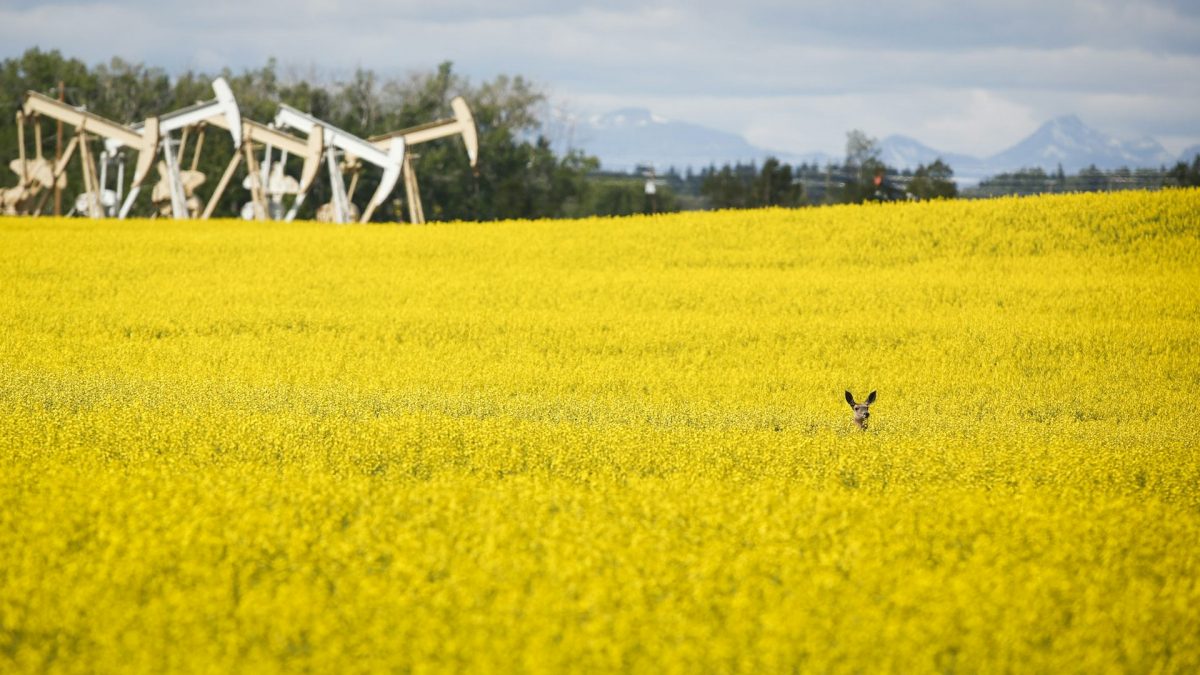
Pumpjacks draw oil out of the ground as a deer stands in a canola field near Olds, Alta., in July 2020. Standard agricultural systems in Canada and around the world achieve high yields, but at times at great ecological costs. Agroecology aims to address these issues. THE CANADIAN PRESS/Jeff McIntosh.
The Conversation: How agroecology can be part of a ‘just transition’ for Canada’s food system
As reported in The Conversation and co-written by Jessie MacInnis, PhD Candidate, Clayton H. Riddell Faculty of Environment, Earth, and Resources and the Department of Environment and Geography, University of Manitoba:
Problems in Canada’s food system are being felt from field to fork — and they are increasingly hard to swallow.
After a year of skyrocketing food costs, Canada’s Food Price Report 2024 predicts a further increase of 2.5 to 4.5 per cent for grocery store price tags.
One cause for these higher prices — apart from corporate greed — is attributable to more difficult environmental conditions for farmers. Severe weather events, like flooding and drought, as well as extreme temperatures, are making farming livelihoods increasingly precarious.
This is the case in the Prairie provinces, where immense, export-oriented monoculture farming operations are the norm. These industrial farms are intimately connected to the climate crisis. Industrial farms are highly dependent on emissions-intensive — and expensive — inputs like fertilizers and pesticides and face challenges in adapting to changing climate conditions with agility.
Read the full article from The Conversation.
Research at the University of Manitoba is partially supported by funding from the Government of Canada Research Support Fund.






